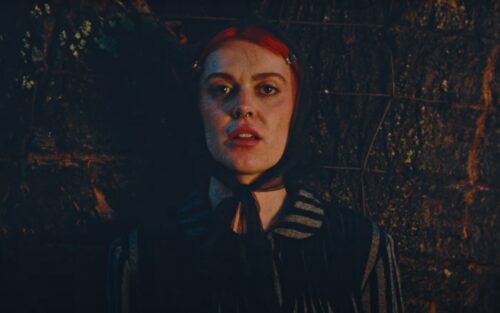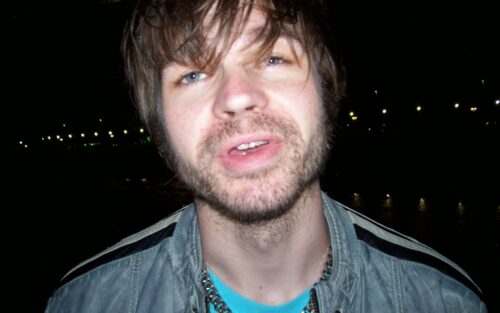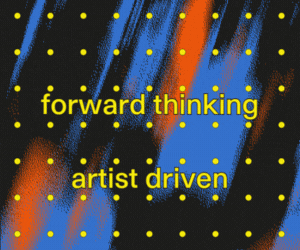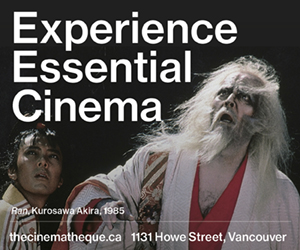Ruby Singh Is On Another Astral Plane
The Vancouver creative’s second a cappella album pays tribute to family members both brand new and dearly departed.
By Ben Boddez
Photo by Dessmin Sidhu
- Published on
Singh’s recent work has included a project with his soulful collective, The Future Ancestors, as well as ambient and hip-hop albums that incorporate beats created by transposing the bioelectric signatures of plant life into MIDI files. His latest venture, though, is a sequel to the Juno award-winning Vox.Infold, an a cappella album featuring the talents of Dawn Pemberton, members of PIQSIQ, Russell Wallace, Shamik Bilgi, Tiffany Moses, and Hussein Janmohamed.
The group behind Vox.Infold was intentionally assembled as a group of artists from racialized communities and a variety of different cultures. This is not only so that each can bring their own lived experiences and cultural knowledge to the table – something that Singh believes dramatically affects the beauty and tone of your singing voice, as each person has their own unique story to tell – but so that they could express joy together in the face of pain.
Last time around, the album dropped during the pandemic and the height of Black Lives Matter protests. On the sequel, however, Singh and the group were inspired by being first-hand witnesses to the cycle of birth and death. “We wanted to speak to what was present for us at the time, and a lot of us had lost a lot of elders in our families, including myself, and there was also this new batch of kiddos being born into the world at the same time,” he says.
“That’s something that nobody ever told me,” he continues. “When you get middle aged, you’re really holding both sides of life. You’re burying your loved ones and you’re welcoming ones into the world. That was the central inspiration for this record: we’ve used song for generations upon generations to welcome people into this world and to help with the journey into the next for our elders. I think that’s been lost a little bit as far as human ritual goes.”
The cycle plays out over the course of the album: one of the its early songs, “Return,” was written as a song of invocation for a friend who was trying to have a baby (the manifested baby boy now being two years old), while the closer, “Mojuba,” is actually a Yoruban hymn inviting the ancestors to the eternal resting place.


Singh does make a lot of music with accompaniment, but for telling deeply personal tales, he believes that there’s something undeniable about forgoing traditional instruments and simply using the human body. Much like a performer’s breath might be processed through a wind instrument to produce the familiar sounds, he says the notes and rhythms that we choose must be processed through a body that’s “experienced all the things that we’ve experienced in life,” altering their distinctive timbres. Not only that, but leaning into the a cappella genre’s communal energy of call-and-response moments and musical canons also echoed the album’s themes of the life cycle.
“We incorporated a lot of Euclidean rhythms to build the basis of it, so it has this morphing cyclical time,” he says. “At the same time where we can be an ancestor, we’re coming into this world. We are of this world. We have left this world. All of those things are, you know, ouroboros-ing into each other. The time signatures are interlocking at different points, so I’ll have some rhythms that are three beats long, some that are 13, so they’re not going to meet up until 39.”
The album’s centrepiece is “Paradise of Lost Souls,” a 12-minute piece featuring interlocking, whispered spoken-word vocals cascading around the ambient, drawn-out, and echoing harmonies from the choir. The genesis of the track was Singh wanting to give individual tributes, thanks and words to the departed for each of the family members he has lost in the last five years. The hypnotic effect of the track was intentional, meant to signify grief’s pervasiveness.
“Grief does this interesting thing where it doesn’t necessarily ever go away, we just attune to it differently. That’s why I wanted to have that mirage, multi-layered, just kind of getting lost in it,” he says. “I had an uncle who was beautifully patient with me. He was from India and his Punjabi was amazing. I’m continually trying to get better in my adult life, because growing up, it was one of those things where it was like ‘I’m just trying to fit in, so I’m not going to speak my mother tongue.’ He always encouraged me to speak in Punjabi, and one of the lines in the song is around that.”
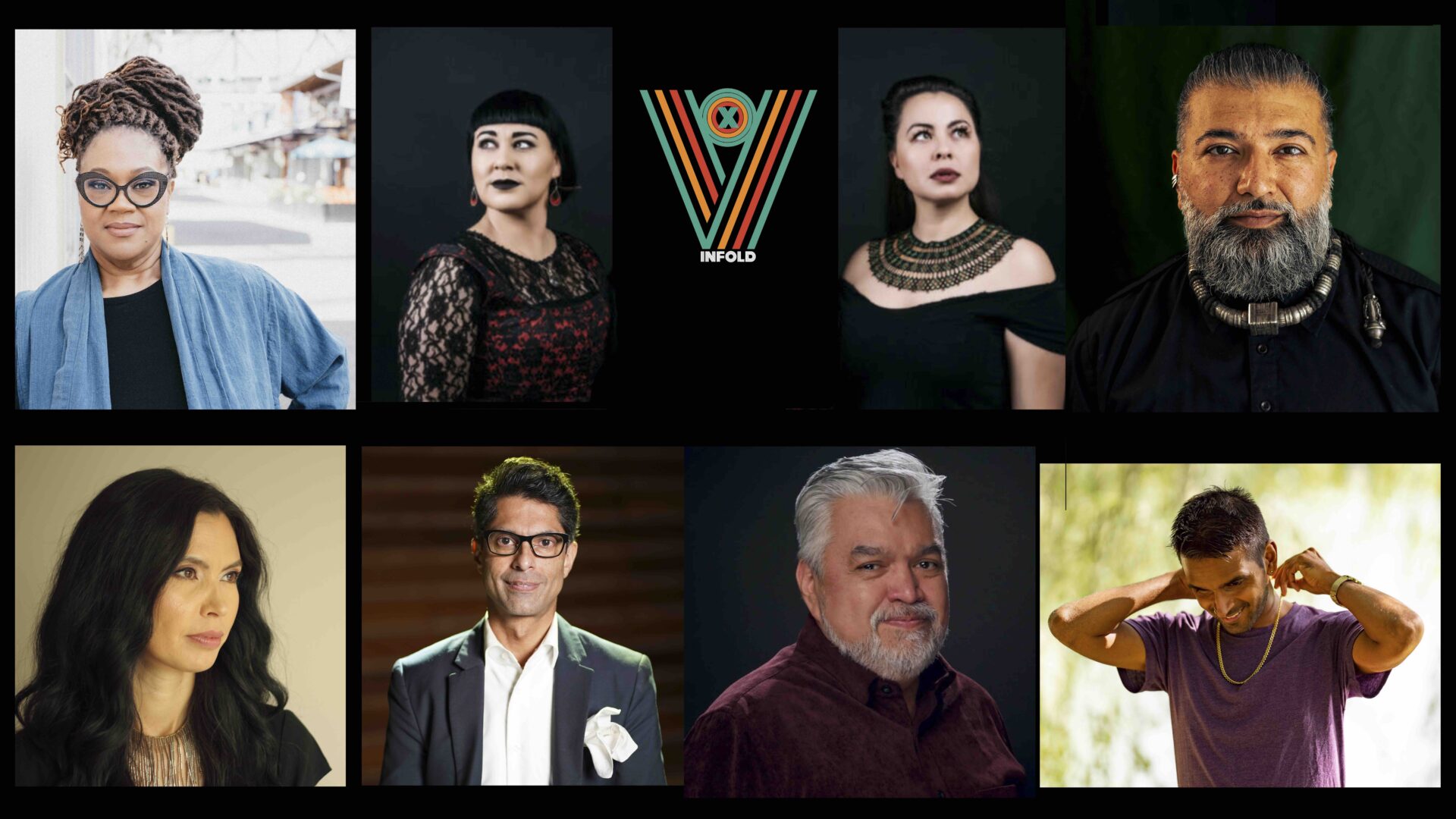
Laughing when the track’s considerable runtime and the focus it demanded was brought up, Singh also mentioned that even this was an intentional choice, to rebel against the algorithmic tendencies to make songs into shorter and shorter soundbites. “I was like, ‘This is about people I love!’ I’m going to linger and express within this as much as I did,” he adds.
Singh’s goal in offering musical welcomings and eulogies to those preparing to enter or leave the world is the desire to be a good ancestor. That doesn’t necessarily mean one that the later generations can look up to for advice after he’s passed on – after all, you might still be an ancestor while still alive, in your present-day form on Earth. Singh says that the essence of being a good ancestor is the ability to have foresight, and doing all that you can to create a better world for your descendants instead of merely surviving in the conditions that you’ve been given.
Singh is also hoping to decentralize death’s negative connotations in the Western world, fostering more of an understanding of it as an inevitable, natural and sometimes beautiful thing. In creating the album, Singh and the Vox.Infold singers were contemplating the kind of music that they’d like to hear on their death beds, realizing that the aspects they’d want to hear in the music were quite similar to that you’d play for a newborn: songs that foster a sense of being cradled, loved, whole and safe.
“It’s very clear that our society shuns death, tries to put it aside and puts it in corners. We celebrate youthfulness through our pop avatar culture,” he says. “I think it’s the one guarantee of life: we’re definitely not going to survive this. The other reason for making the album was just to make it more comfortable for us to be thinking about it. It doesn’t have to be a morbid thing; it’s just a really real thing.”
A tireless creative, Singh is already working simultaneously on follow-up projects to his hip-hop based KraKIN series, plant-inspired Polyphonic Garden series (this time focusing on climate change as a topic), Future Ancestors albums and even the third installment of Vox.Infold. Leaving behind all of this work for listeners to be inspired by, Singh’s goal of being a good ancestor is all but assured.
By Stephan Boissonneault
Nate Amos revisits a decade of stray ideas and turns them into his most compelling record yet.
By Khagan Aslanov
Mike Wallace’s electro-punk project premieres the hypnotic, percussion-driven video for "Certain Days."

